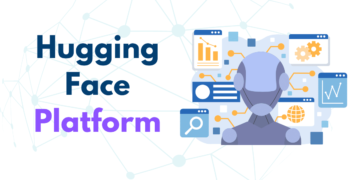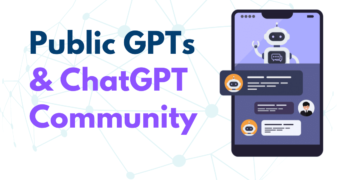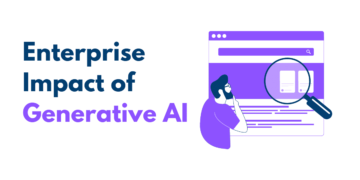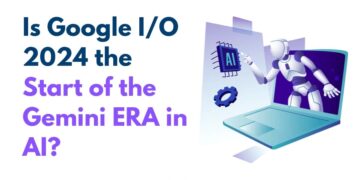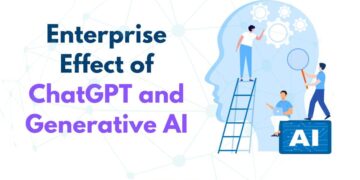[ad_1]
Apple announced on Friday that it could block its extremely anticipated Apple Intelligence AI options, iPhone Mirroring, and SharePlay Display screen Sharing for EU customers. Whereas not solely surprising, this determination underscores the rising stress between fast technological development and the EU’s stringent regulatory framework, notably the Digital Markets Act (DMA) and Basic Knowledge Safety Regulation (GDPR).
From the EU’s perspective, this delay represents each a triumph and a problem. It demonstrates the effectiveness of laws safeguarding consumer privateness and selling truthful competitors. The DMA and GDPR have compelled tech giants to pause and rethink their approaches, probably resulting in extra user-centric and privacy-conscious merchandise. Nevertheless, this victory comes with a worth: the chance of falling behind within the international AI race.
As different areas forge forward with much less restrictive insurance policies, the EU should rigorously steadiness its regulatory stance with the necessity to foster innovation and keep competitiveness within the international tech panorama. For Apple, this delay is probably going a calculated transfer. The corporate backs the choice by citing safety and privateness causes, which helps sustain its model profile as a reputed tech big that cares about privateness.
All in all, this might protect consumer religion whereas giving Apple extra time to regulate how its AI functions to be likewise appropriate with EU legislation. Nevertheless it additionally introduces competitors and raises the chance that Apple will cede potential floor to opponents who would possibly handle to navigate the regulatory surroundings sooner. However, suspending AI choices of different tech behemoths reminiscent of Meta and Google within the EU additionally signifies a broader industry-wide problem.
A lot of these corporations say they want massive, educated AI programs to work appropriately however declare that GDPR restrictions drastically restrict what they will do in follow. That begs the query: Can superior AI know-how coexist with a few of the world’s strictest knowledge safety laws?
Apple’s AI product would most definitely obtain scrutiny in comparison with its opponents. The core issue is the data-hungry nature of contemporary AI programs. To supply personalised and efficient companies, these AIs require entry to huge datasets, which can violate GDPR rules reminiscent of knowledge minimisation and function limitation.
Nevertheless, Apple may have a bonus on this space. Its emphasis on on-device processing and differential privateness approaches could allow it to develop AI options extra compliant with EU requirements. If profitable, this would possibly set up a brand new norm for privacy-preserving AI, offering Apple a bonus within the European market.
And it’s not Apple’s first encounter with EU regulation. In September 2021, the corporate complained about elements of the DMA guidelines that will have compelled it to permit customers to sideload apps from its App Retailer for the primary time. Apple claimed that doing so would jeopardise consumer privateness and safety, reinforcing its long-standing perception within the sanctity of its closed ecosystem.
Moreover, Apple’s current transfer to ban progressive internet functions (PWAs) within the EU has precipitated developer objections. Many noticed this determination as one more try to withstand regulatory stress. Nevertheless, in an surprising flip of occasions, the EU concluded that Apple’s therapy of PWAs didn’t breach DMA tips, prompting the corporate to rethink its determination.
International implications: Fragmentation or harmonisation?
These incidents make clear the intricate relationship between tech corporations and regulators. Firms like Apple are identified for resisting laws they understand as too strict. Nevertheless, they have to even be prepared to regulate their methods when their understanding of the principles is questioned.
The EU delay of Apple’s AI options is greater than a bump within the highway. It illustrates the advanced relationship between authorized and technological innovation. Discovering that steadiness shall be important as we go ahead. Regulators and the tech {industry} will each must adapt to construct a world the place high-powered AI is allowed to function whereas additionally respecting human rights and privateness.
It’s a reminder that there aren’t any clear programs to comply with within the consistently altering world of AI. Governments, in flip, will have to be prepared for contemporary pondering and inventive formulation if we wish the powers of AI dropped at the great in methods which might be true to the values and rights on which our digital society rests.
Nevertheless, the timing of the controversy raises questions on the way forward for international tech improvement. Will the digital panorama proceed to fragment, with completely different functionalities obtainable in different geographies primarily based on what’s permissible by that jurisdiction’s laws? Or is it the course of a extra harmonised international method to tech regulation and improvement?
As shoppers, we discover ourselves in a continuing wrestle between the forces of innovation and regulation. As know-how advances, we’re desperate to embrace the most recent AI-powered options that improve our digital experiences and cater to our particular person wants. Nevertheless, it’s equally necessary to us to prioritise defending our privateness and knowledge.
Firms reminiscent of Apple face the problem of pushing the boundaries of what’s potential with AI and establishing new benchmarks for privateness and safety. To sum up, Apple’s determination to delay its AI options within the EU is a serious story within the persevering with dialogue of tech innovation and regulation. It highlights the necessity for a extra refined and collaborative technique to type our digital future.
As we go down this path, will probably be all of the extra necessary to have open and constructive conversations with all stakeholders—tech corporations, regulators, customers—to give you options that promote innovation whereas safeguarding fundamental rights. Certainly, the way forward for AI basically in Europe and on a world scale is perhaps at stake as we wrestle via these stormy seas.
(Picture Credit score: Apple)
See additionally: Musk ends OpenAI lawsuit while slamming Apple’s ChatGPT plans
Wish to be taught extra about AI and large knowledge from {industry} leaders? Take a look at AI & Big Data Expo happening in Amsterdam, California, and London. The excellent occasion is co-located with different main occasions together with Intelligent Automation Conference, BlockX, Digital Transformation Week, and Cyber Security & Cloud Expo.
Discover different upcoming enterprise know-how occasions and webinars powered by TechForge here.
[ad_2]
Source link

